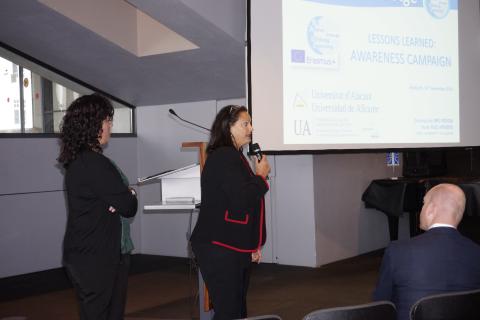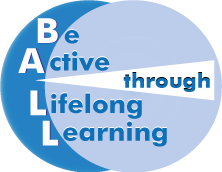European project "BALL" collects the conclusions made by the University of Alicante on the need for training individuals from the age of 50 to cope with retirement

Getting ready for active retirement, avoiding health, social, financial, legal problems and dependency is a must
Guidelines and recommendations for this purpose are contained in the publication "Towards a dynamic Third Age"
Alicante. 20 September 2016
The University of Alicante, U3A Reykjavik, Evris Foundation Ses (Iceland) and Towarzystwo Wolnej Wszechnicy Polskiej Oddzial w Lublinie (Poland) confirm the need for getting ready for retirement from the age of 50.
This is the main conclusion made at the European project BALL final conference (2014-2016), where the steering committee participated on 14 and 15 September in Reykjavík (Iceland). The projects urges us to establish guidelines and recommendations on best practices for preparing individuals at an early stage to face the “third age”, insisting on lifelong learning, immediate environment and cultural atmosphere as well as sharing knowledge. All the works developed in this regard were submitted to the final conference of this European Erasmus + project, organised by the Office of the Vice President for Studies Planning & Training Actions within the framework of the UA Senior Diploma, where experts focused on analysing and making conclusions on how well prepared are European citizens for retirement. The partners presented the objectives and milestones, the lessons learned and the results of the project according to the guidelines, which are raising awareness, personal development academy and warehouse of opportunities for individuals to get ready for retirement”.
Raising awareness was the part that our university was in charge of, was presented by researcher and director of the UA LifeLong Learning Programme (UPUA) Concepción Bru Ronda and research technician Nuria Ruiz before their partners. The UA team’s role was to design the process for centres, institutions and organisations to train their members for retirement. To do this, they did a mapping of retirement in Europe first; later they developed a survey on the situation of retirement and, finally, the draw the conclusions from which the entire Awareness Campaign was designed.
Why getting ready for retirement is important
In welfare societies, numbers suggest that a 50-55 year-old person has still ten to fifteen years ahead before retirement and then twenty years of fully active life to enjoy while retired. So we have to ask ourselves what we want to do those years of life and get prepared in issues such as finance and law, health-prevention, social skills, culture and leisure or prevention of dependency.
Concepción Bru defended the relevance of an awareness campaign on the value of the elderly in society, targeting both the general public as the elderly, as "more and more people live longer and in better conditions". Bru revealed that depression is an illness that may occur in this stage" when individuals stop their working activity all at once."Feeling active, inclusive, useful for retired people is the aim of BALL that seeks to maintain social relationships, the dynamics of movement and make them feel as part of society. For this purpose the key is "to reinvent ourselves by working in areas where we were not trained before such as doing volunteering, for instance and in this way, we can be better prepared to improve retirement".
The BALL final conference closed with the presentation of the UA campaign, the exposure of the personal development academy by the team from Poland and the presentation of the warehouse of opportunities conducted by experts from Iceland. During the conference, the partners presented the recent publication of the guidelines and recommendations of Erasmus + Project BALL entitled "Towards a dynamic Third Age".
Bru revealed that the idea is to continue to implement this project in Europe. In fact, they are already looking to implement this project with some companies that have participated in it and with the UA Department for Education. Since this has been already applied to our Longlife Learning Programme (UPUA), as it the case of training actions for over 50s,"we were invited to participate due to our experience in many of the subjects we are teaching which have been recommended in the project."
The team participating in the project was made up of members of organizations with extensive experience in working with the elderly in three European countries. Representatives from various professional areas and private and public institutions and experts from the fields of Geriatrics, Gerontology, Sociology, Psychology, Education for seniors, and business and various professional sectors were involved in the project.






